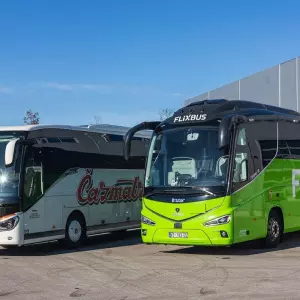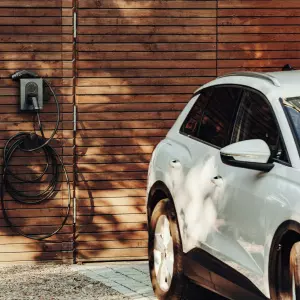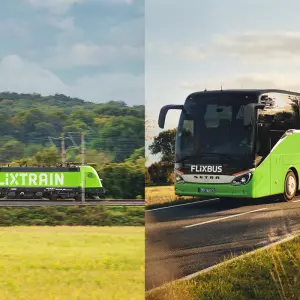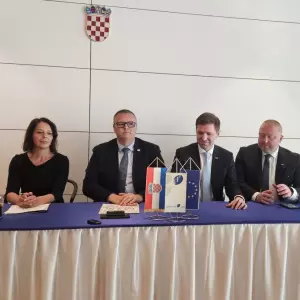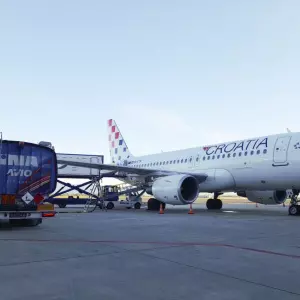Flix, a pioneer in the public transport sector that offers climate-friendly alternatives for practical and affordable travel through its FlixBus and FlixTrain brands, recently participated in an ambitious project led by OEM Daimler Buses with the aim of developing completely electric drive high-performance for long-distance buses in the next 4 years.
Financing of this project through the German Ministry of Economy and Climate Action has already been secured by a parliamentary resolution.
The project involves testing this technology on two prototype buses in real conditions, relying on Flix's expertise and knowledge in managing the largest bus network in the world. Flix will continuously evaluate performance to ensure in real-time that all necessary requirements are met to ensure operational efficiency, with the aim of long-term scalability of the FlixBus fleet.
"We believe in the carbon neutrality of bus travel as a solution for the complete decarbonisation of travel. Since we launched FlixBus, we have repeatedly sought to reduce our environmental impact by exploring alternative drives and enabling the compensation of our carbon footprint. With Daimler and reliable research partners who share our vision of a greener future in transportation, we can now follow another milestone towards our goal of reshaping mobility and offering green, technology-driven and still affordable travel solutions to all those who discover the world”, He said André Schwammlein, founder and CEO of Flix.
On the road to decarbonization: technology as a catalyst for environmental protection
In addition to Flix, some of Germany's most prominent institutes for research and education in the field of technology have joined forces with Daimler Buses to work on this project. With it, Flix, Daimler Buses and partners strive to overcome the technological obstacles surrounding alternative drives that prevent their application over long distances. Their biggest challenge is the combination of efficiency on long distances and operational flexibility, while ensuring the possibility of charging and adequate capacity for passengers and luggage.
For the development of such technology, a holistic approach is sought, taking into account a very diverse set of factors. The modular drive will be designed taking into account key parameters such as energy consumption, reach, driving performance and battery life, which will then be linked to cost effectiveness, environmental impact and overall suitability for use in today's bus market.
After evaluation of the final concept, two drive prototypes will be integrated into demonstration buses and tested in real operating conditions. Upon validation of the test results, the production of such vehicles will then be the starting point for a cost-effective production process of fully electric long-distance buses.
In line with its long-term vision of carbon-free mobility in which alternative drives play an important part, Flix will play a key role in the whole process. The current FlixBus fleet will serve as a database for the deduction of representative operating cycles on intercity lines, and Flix will promptly assess the operational properties of the planned solutions to implement assumptions about a possible transition to long-distance battery-electric buses already in the design of the project. In addition, Flix will be involved in validating the demonstrator vehicles under real operating conditions.
Flix - a pioneer in alternative-powered intercity bus transport
On average, each intercity bus trip over a distance of 400 km saves 6,6 kg of CO2 emissions per passenger compared to a car trip. Also, while a bus trip from Munich to Berlin produces about 15,6 kg of CO2, a flight on the same routes results in approximately 143 kg of CO2. Therefore, long-distance buses are already considered a relatively sustainable mode of travel.
However, there is still a lack of a practical solution for the fully neutral operation of a fleet of long-distance buses in regular traffic, which has led Flix to test different solutions to accelerate its path to decarbonisation. Among other things, the first e-Bus pilot projects were carried out in France and Germany, after which the company also tested solar panels. As a pioneer of sustainable transport, Flix operated the first green long-distance trains in 2018, and launched the first biogas-powered long-distance buses in the EU in 2021.
Since it is open to new technologies and expects to use a combination of different technologies in its vast network in the future, Flix is also involved in the development of hydrogen fuel cell buses through the HyFleet project.
Record results
Flix, which operates in 39 countries, reported io record results of last year's summer season. Thanks in part to the growing importance of shared and climate-friendly mobility, Flix increased the number of passengers transported globally by 130% from April to September 2022, compared to the same period a year earlier.
All major Flix markets in Europe have recovered well from the pandemic and have grown significantly compared to 2021. The biggest markets for Flix are Germany, Italy, France and Poland, and based on Flix's strong commitment to the region, FlixBus Ukraine has secured additional connections and consequently recorded the highest relative growth in the number of passengers in the specified period.
Source, photo: Flix

